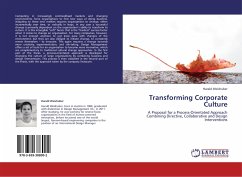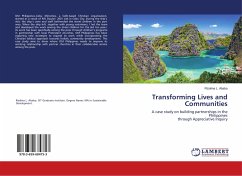Competing in increasingly commoditised markets and changing environments, force organisations to find new ways of doing business. Adapting to these new realities requires organisations to change, either incrementally over time, or radically in leaps. In any case a successful change is primarily dependent on the organisation s ability to transform its culture. It is this intangible soft factor that is the hardest success factor when it comes to change an organisation. For many companies, however, it is not enough anymore to just keep pace with changes of the environment, but they are also obliged to initiate change, to constantly renew themselves to innovate. This again requires a change towards more creativity, experimentation, and risk-taking. Design Management offers a set of tools for an organisation to become more innovative, which are complementary to traditional cultural change approaches. In the first part of the thesis, a process-orientated approach is developed for changing the culture of large organisations by combining business and design interventions. This process is then validated in the second part of the thesis, with the approach taken by the company Swisscom.
Bitte wählen Sie Ihr Anliegen aus.
Rechnungen
Retourenschein anfordern
Bestellstatus
Storno








